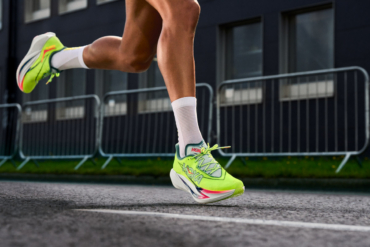The World Triathlon executive board’s new policy allows trans women to compete in the female category under rules that closely follow international cycling guidelines.
As of this week, trans women — those assigned male at birth but transitioning to and identifying as women — can compete as female athletes in triathlons under World Triathlon’s new guidelines. The policy change represents a significant shift from rules established by the International Olympic Committee (IOC).
Previously, World Triathlon subjected transgender athletes to the same rules as the IOC. But the efficacy of that policy essentially dissolved in 2021, when the IOC published a document that placed trans athlete regulatory responsibilities on each individual sport.
Despite paving the way for trans women to compete, the new World Triathlon policy also places restrictions on how trans athletes get approval to compete internationally. They must lower their testosterone levels to 2.5 nmol/L for at least 24 months. Also, they can’t have competed as a male for the previous 48 months.
The new policy, which will take effect in 30 days, states:
To compete in the female category in an Elite or Age-Group triathlon competition, a Transgender athlete must demonstrate that the concentration of testosterone in the athlete’s serum has been less than 2.5 nmol/L continuously for a period of at least 24 months. Also, at least 48 months must have elapsed since the Transgender athlete has competed as a male in any sporting competition.
World Triathlon has approved the Transgender Policy, after extensive consultation with the Medical/Athletes/Coaches/Legal & Constitution/Women’s Committees, Equality, Diversion & Inclusion Commission as well as experts and transgender community. https://t.co/M4otameGxj
— World Triathlon (@worldtriathlon) August 3, 2022
Conflict With Other Transgender Athlete Policies
While most of World Triathlon’s 10-member executive board approved the policy, two of its members voted against it. The dissenting votes came from Vice President Ian Howard and President of the Athletes Committee Tamas Toth.
The board spent a year consulting with sports scientists, human rights experts, and transgender athletes.
“We are a small International Federation, but one that has always had inclusion and gender balance in our DNA,” said Marisol Casado, World Triathlon president and IOC member. “The Policy that we have just approved shows that we are prioritizing the fairness principle but showing inclusiveness.”
Its guidelines closely follow the Union Cycliste Internationale (UCI)’s new regulations for cyclists, announced on June 17.
However, not all organizations agree with World Triathlon. In July, British Triathlon became the first U.K. sport to ban transgender athletes over the age of 12 from competing in female competitions.
A spokesperson for British Triathlon told Tri247 that its policy would still be implemented as planned next year.
“[W]e have begun working on guidance for event organizers, clubs, officials, and coaches, to share this autumn, before the policy comes into effect from 1 January 2023,” the spokesperson said. “This guidance will support the implementation of this policy and serve to ensure that our sport continues to develop in being welcoming, supportive, and inclusive for everyone.”
Mixed Reception
Athletes of all kinds remain divided about how to handle transgender competitors in professional sports. The debate has become more intense as bans on trans athletes have become more common in recent years.
Like the British Triathlon, the World Rugby League banned trans women from playing in the women’s division in October 2021. Shortly after the announcement, a group of 200 female athletes signed a legal document supporting the right of trans women and girls to compete as women. The group included famous tennis champ Billie Jean King.
“There is no place in any sport for discrimination of any kind,” King said at the time. “I’m proud to support all transgender athletes who simply want the access and opportunity to compete in the sport they love.”
Likewise, British racing driver Charlie Martin told the BBC in May, “I’m sure if you look into sport, there are people out there who have these advantages which people celebrate. Yet as soon as we look at transgender women, it’s like a completely different set of rules and that to me feels like blatant discrimination.”
But some female athletes — and even some trans athletes — believe that trans women retain an advantage over cis women. A study published in the British Journal of Sports Medicine in 2021 found that trans women still had an athletic advantage over their cisgender peers, even after a year of hormone therapy.








